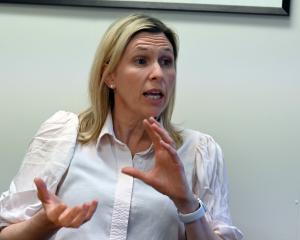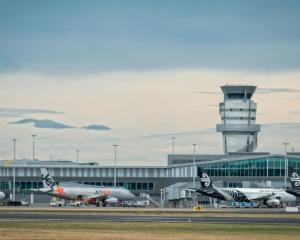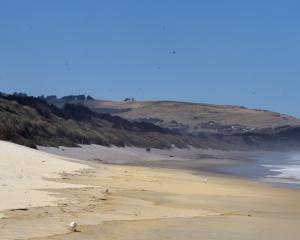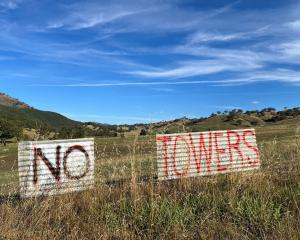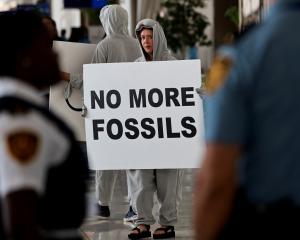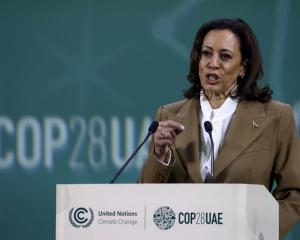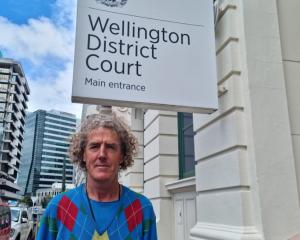A total of 727 people responded to a poll on nzherald.co.nz which asked: What do you think of the climate agreement reached at the Copenhagen summit? Eight percent thought it was a good starting point.
Ninety-two percent thought it was ineffective and would make no difference.
This is ordinary people speaking.
They were not taken in by political rhetoric about snatching victory from the jaws of defeat.
They are ultimately the people who count - not the scientists, bureaucrats and political elites.
As respected British journalist Clive Crook wrote in the Financial Times prior to the meeting: "It is not enough for climate scientists and environment ministers to go to Copenhagen and tell each other how right they are.
"They also need to convince the public.
"National politics - the democratic process - is awfully inconvenient sometimes, but cannot be waved away."
It has been obvious for months that no substantive agreement would be reached at Copenhagen.
The Government's unseemly rush to pass the emissions trading legislation before the meeting and before decisions by the United States and Australia was folly.
But Copenhagen was a much greater farce than expected.
Delegates were treated to tirades by Venezuelan President Hugo Chavez (about the evils of capitalism), Robert Mugabe (whose decimation of the Zimbabwean economy has certainly curbed emissions) and the splendidly named Sudanese G77 representative Lumumba Di-Aping (who likened developed countries' attitudes towards climate change to Nazism).
The whole United Nations process is now in question.
The Chinese leadership snubbed United States President Barack Obama, and its delegation said it was happy with the outcome.
Western environmental lobbies have not faced up to the reality that China (and India) will simply not give emissions reductions priority over the economic growth needed to raise millions out of poverty.
What's more, China, India and other developing countries will account for the lion's share of future emissions growth.
No agreement makes sense without their participation.
Then there is Climategate the scandal over emails from the Climate Research Unit at the University of East Anglia.
These showed leading members of the UN Intergovernmental Panel on Climate Change - including New Zealander Kevin Trenberth - variously admitting that climate models cannot account for the pause in global warming and talking about manipulating statistics, suppressing research and deleting data.
As Crook noted: "These are not the standards one expects of science.
"The work of these researchers is being used to press the case for economic policies with colossal adjustment costs."
IPCC chair Rajendra Pachauri, who initially defended the Climategate scientists, is now being accused of making a fortune from his links with carbon-trading interests.
Where to from here?
The repercussions of the failure at Copenhagen will take time to play out.
But it is unlikely to be a matter of business as usual.
World leaders are scheduled to resume their negotiations in Mexico in December this year - if they turn up.
This year is a US congressional election year and some observers believe the Obama Administration will be unable to get cap-and-trade legislation through the senate.
Policy in Australia is in limbo, with the Government so far failing to enact its ETS legislation and the opposition Liberal party ousting its pro-ETS leader Malcolm Turnbull - the democratic process at work again.
With no ETS in place in Australia and no broad international trading market in prospect, significant premises of New Zealand's ETS scheme may be in doubt.
The economy remains weak and December's Budget documents suggest the current account deficit is set to widen alarmingly again with any recovery.
In this situation it would be madness to impose extra costs on export industries ahead of our trading partners.
A fundamental stocktaking seems required.
The Business Roundtable has taken the view that a respectable body of scientific opinion suggests there is a risk of dangerous warming, and that judicious policy action is justified in line with (but not ahead of) major trading partners.
Preferably this should take the form of a low carbon tax, or even a simple energy tax, rather than a complex ETS, at least in the first instance.
If the Government were to reassess its policy, it should begin with a proper regulatory impact analysis of what action might be justified to maintain good international relations and protect New Zealand's commercial interests.
Polls suggest New Zealanders are willing to pay something for these benefits, but not a lot.
The Government should also press on with its excellent initiative on agricultural research, promote more open debate about the science and actively counter the hysterical claims of Greenpeace and others in the interests of achieving greater public consensus and policy stability.
As Clive Crook noted: "Governments should be honest and base their case for action on what they know that is, on a balance of probabilities, not on exaggerated certainties.
"The public, they will find, can cope. Voters are not fools."
- Roger Kerr is executive director of the New Zealand Business Roundtable.




